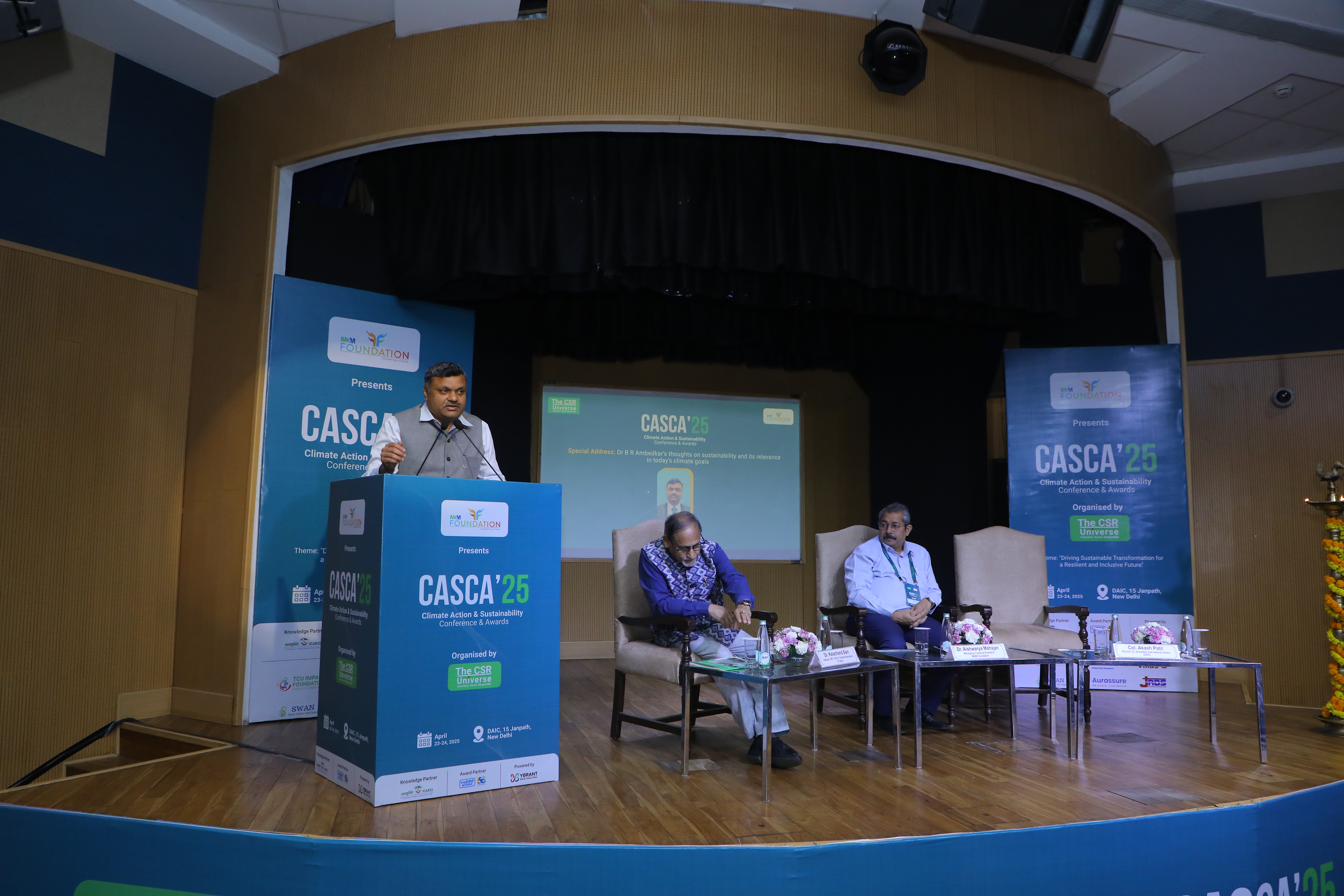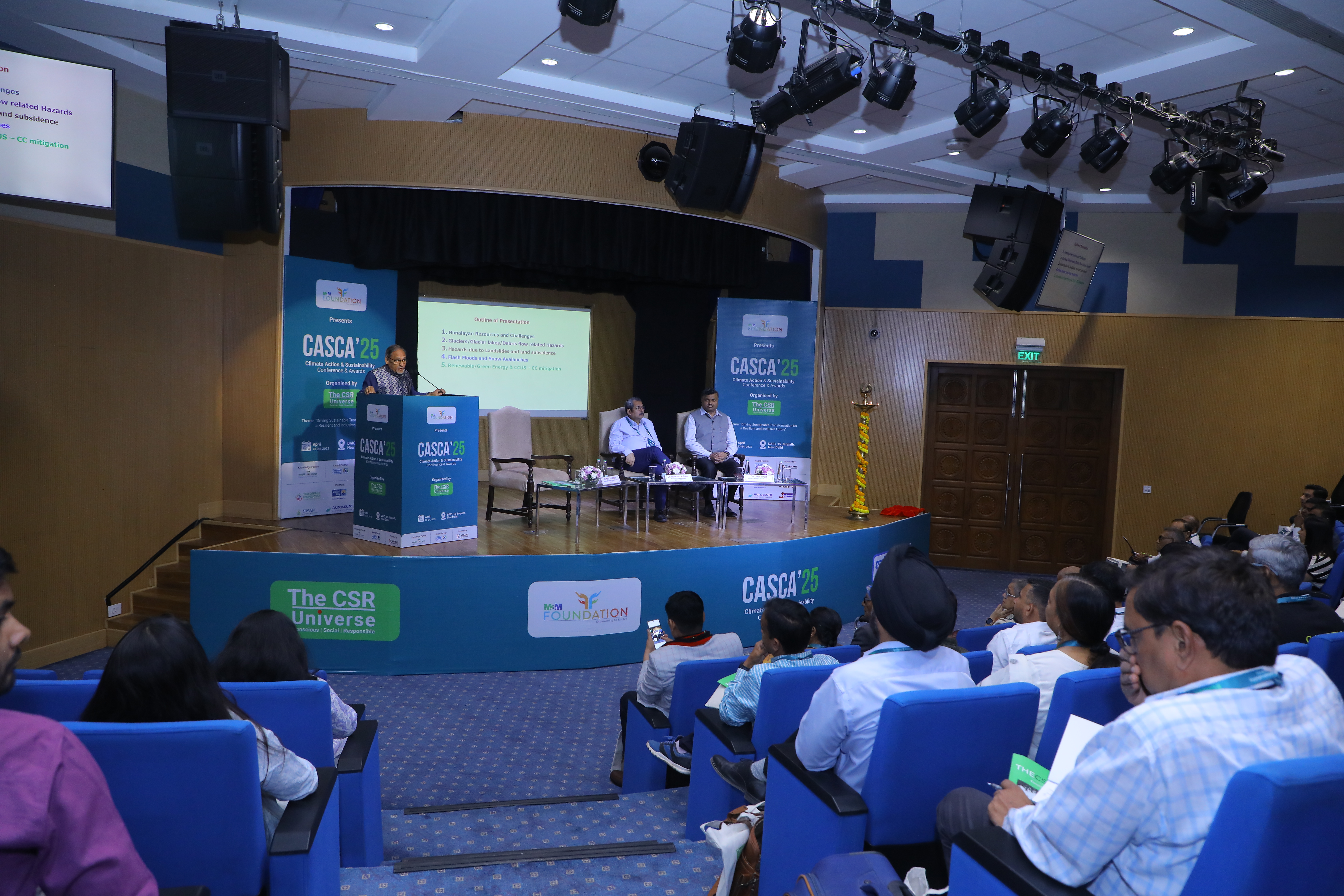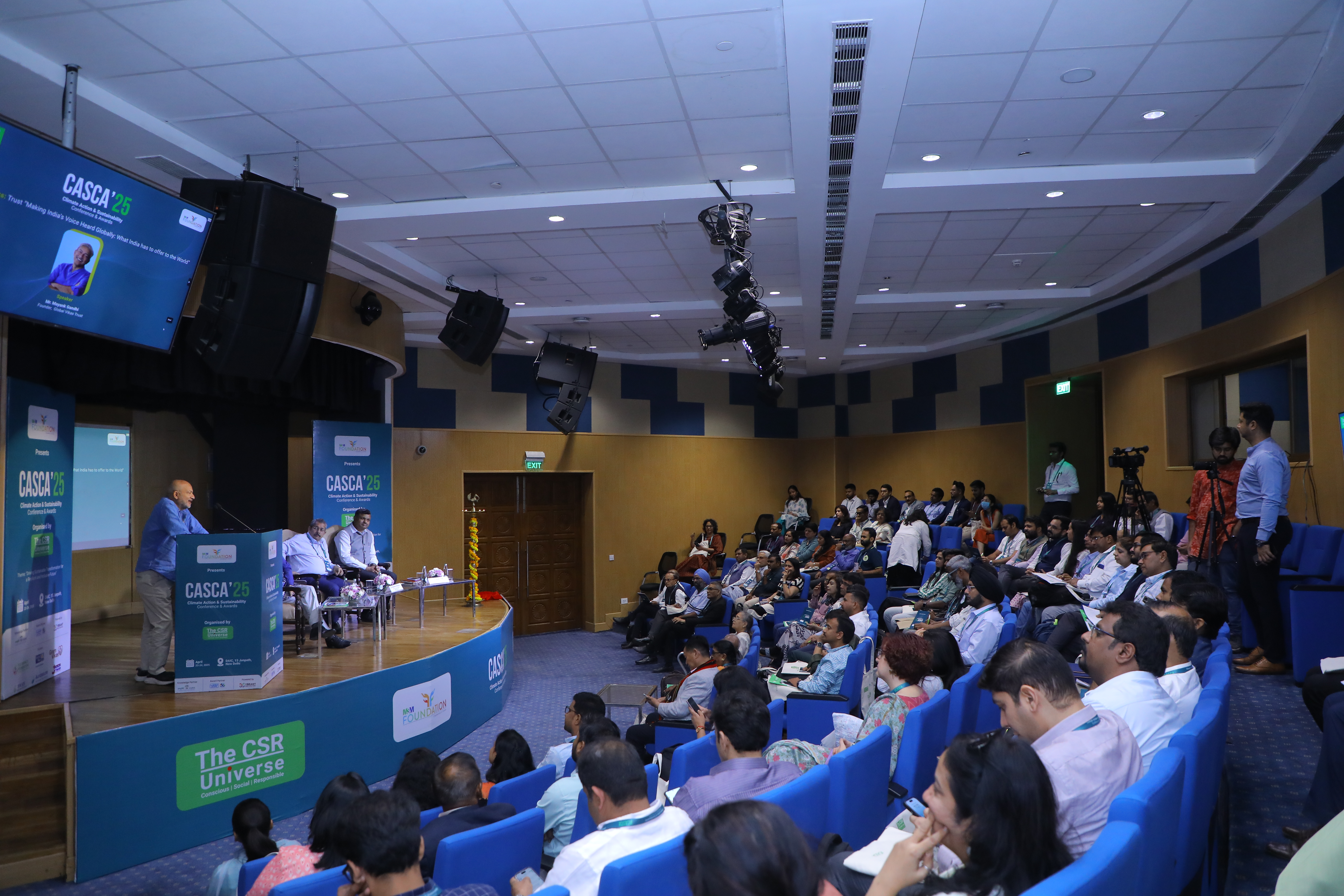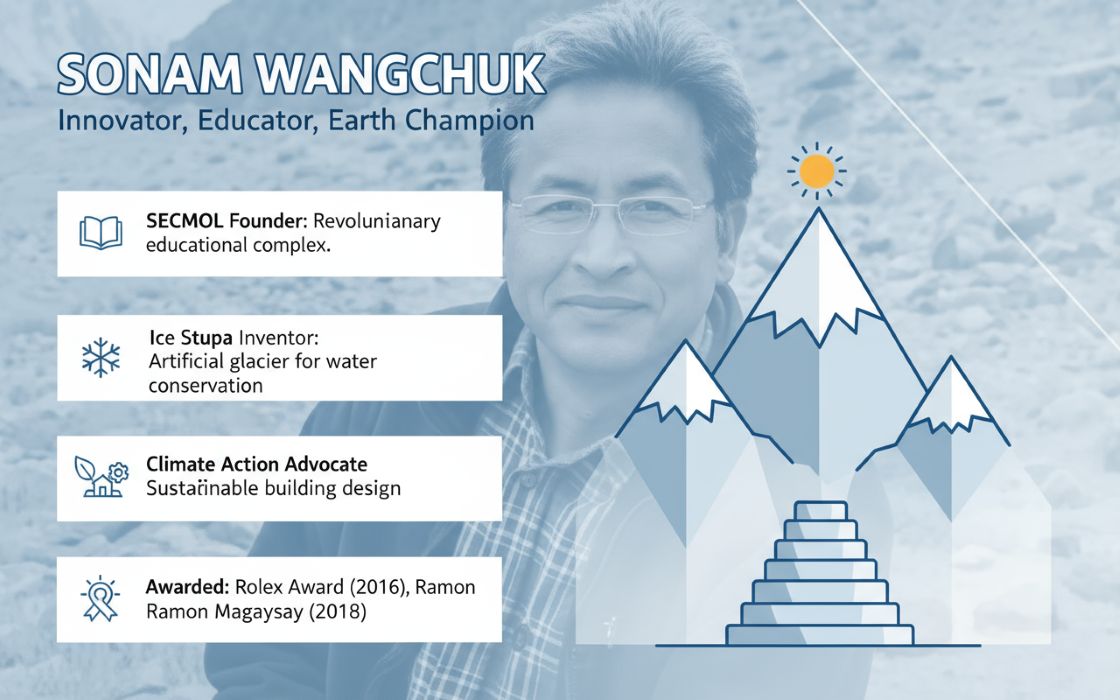The inaugural session of CASCA’25 – Climate Action & Sustainability Conference and Awards 2025, hosted by TheCSRUniverse and presented by M3M Foundation, set the stage for a powerful and solutions-focused discourse on sustainability. The event, powered by YBRANT and with NTPC as the Award Partner, convened visionaries, experts, and changemakers to address the escalating challenges of climate change through inclusive and actionable strategies.
Here are the highlights from the insightful addresses delivered during the session:
Welcome & Agenda Briefing by Ms. Ruchika Kumar, Editor, TheCSRUniverse
Ms. Ruchika Kumar opened the conference by emphasizing the urgent need for climate action. She called on all delegates to move beyond conversations and to translate dialogue into impactful initiatives. Highlighting the critical importance of community-driven solutions, Ms. Kumar spoke about areas such as sustainable agriculture, waste management, biodiversity protection, and climate justice as essential fronts in the fight against the climate crisis.
Inaugural Address: Dr. Aishwarya Mahajan, Managing Trustee & President, M3M Foundation
Dr. Aishwarya Mahajan opened CASCA’25 with a powerful message about redefining what success means in the realm of sustainability. He emphasized that sustainability should not be measured merely by budgets or the number of initiatives, but by the tangible, positive impact on people’s lives and the environment. For Dr. Mahajan, success is about restoring ecosystems, creating inclusive systems that empower communities, and fostering circular economies that can sustain the planet for future generations. He urged all stakeholders to think beyond superficial metrics and focus on meaningful, systemic change.
Dr. Mahajan also positioned CASCA as India’s proactive response to the global climate crisis. He highlighted the importance of building a South-led sustainability movement that is rooted in local realities but aspires to global leadership. His call to action was clear: India must harness its unique strengths and diverse communities to pioneer innovative climate solutions. By fostering collaboration among governments, businesses, and civil society, Dr. Mahajan believes India can set a new standard in climate action and sustainability leadership worldwide. 
Special Address: Dr. B.R. Ambedkar's Vision on Sustainability and Climate Justice by Col. Akash Patil, Director, Dr. Ambedkar International Centre (DAIC)
Col. Akash Patil illuminated the profound relevance of Dr. B.R. Ambedkar’s ideas in today’s fight against climate change. He drew parallels between Ambedkar’s advocacy for justice, equality, and fraternity and the modern Sustainable Development Goals (SDGs), emphasizing that true sustainability requires social equity at its core. Col. Patil stressed that Ambedkar’s vision was not just about political rights but also about equitable access to natural resources such as land and water, which are essential for climate resilience and community well-being. “Dr. Ambedkar believed in decentralization and community participation—principles essential for sustainable development,” he said.
Further, Col. Patil connected Ambedkar’s work on water resource management to current challenges posed by climate-induced water scarcity and unequal distribution. He underscored that incorporating Ambedkarite principles into climate policies ensures that marginalized communities are included in decision-making and benefit fairly from sustainability efforts. This approach, he said, is crucial for building an inclusive, just, and resilient society capable of withstanding climate shocks while promoting social harmony.
Special Address: Climate-Induced Geo-Hazards in the Himalayas – The Way Forward by Dr. Kalachand Sain, Advisor, DST CoE for Climate Information, IIT Delhi 
Dr. Kalachand Sain provided a comprehensive overview of the increasing climate-induced geo-hazards impacting the fragile Himalayan region. He pointed out the accelerating glacial melt, which disrupts natural water cycles and leads to a surge in landslides, flash floods, and avalanches. These events pose severe threats not only to local communities but also to the broader ecosystem. Dr. Sain emphasized that these challenges are interconnected symptoms of the climate crisis, demanding urgent attention from both the scientific community and policymakers.
Highlighting the way forward, Dr. Sain stressed the importance of developing disaster-resilient and climate-adaptable societies through a collaborative approach involving scientists, policymakers, local authorities, and communities. He advocated for the integration of climate information systems and early warning mechanisms to mitigate risks effectively. Dr. Sain also underscored the necessity of preserving natural buffers such as forests and wetlands, which play a crucial role in absorbing climate shocks. Protecting the Himalayas, he concluded, is essential for India’s ecological balance and water security, and translating scientific insights into actionable policies is key to safeguarding both people and biodiversity.
Special Address: Transforming India through Sustainable Agriculture at Scale by Mr. Mayank Gandhi, Founder, Global Vikas Trust
Mr. Mayank Gandhi highlighted the pivotal role of sustainable agriculture in combating climate change and securing India’s future food systems. Drawing from the work of Global Vikas Trust, he emphasized the need for large-scale adoption of regenerative farming practices that restore soil health, increase biodiversity, and reduce carbon footprints. “If we want to solve the climate crisis,” he said, “we must start by empowering our farmers.” He stressed that empowering farmers with knowledge, training, and resources is critical to scaling these climate-resilient agricultural models. 
Mr. Gandhi also discussed the importance of community-based approaches and supportive policy frameworks that can encourage farmers to transition from conventional to sustainable practices. By focusing on capacity building and local leadership, these efforts not only improve the livelihoods of farming communities but also contribute to wider climate resilience. His address underscored the interconnectedness of environmental sustainability and social empowerment as key drivers for India’s transformation toward a greener future.
This rich dialogue set the stage for several core themes that emerged as critical pillars for climate action and sustainability in India:
Themes Covered:
Sustainable Agriculture: Promoting regenerative farming to build climate resilience and food security.
Climate-Induced Hazards: Addressing the growing risks of natural disasters in fragile regions like the Himalayas.
Ambedkar’s Vision & Climate Justice: Integrating social justice and equality into climate action frameworks.
Redefining Sustainability Success: Measuring impact by real-world outcomes rather than outputs.
Community Inclusion & Resilience: Empowering communities to lead climate solutions and build adaptive capacity.
Conclusion: A Call to Collective, Inclusive Climate Action
The inaugural CASCA’25 session made it clear that addressing climate change demands more than isolated efforts—it requires unified, inclusive action across sectors and communities. Drawing inspiration from Dr. Ambedkar’s principles and scientific insights into vulnerable ecosystems, the dialogue underscored the power of partnerships and community empowerment to create resilient, just, and sustainable futures. As CASCA moves forward, the collective commitment to translate knowledge into action will be crucial for shaping India’s leadership in global climate solutions.









.jpg)






